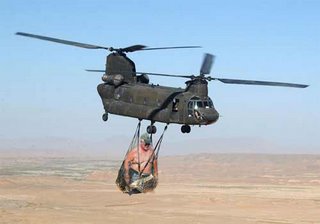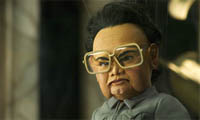Lebanon Travel Warning
May 02, 2006
This Travel Warning updates information on threats to American citizens and interests in Lebanon. It supersedes the Travel Warning for Lebanon issued November 7, 2005.
The Department of State urges U.S. citizens to carefully weigh the necessity of their travel to Lebanon in light of the risks noted below. U.S. citizens in Lebanon are encouraged to register with the U.S. Embassy in Beirut where they may also obtain updated information on travel and security in Lebanon. See registration details below.
Recent events in Lebanon underscore the need for caution and sound personal security precautions. Former Prime Minister Rafiq Hariri was assassinated on February 14, 2005 in a car bomb attack in which at least 22 other people were killed and many others seriously wounded; the potential for violence remains. Since March 2005, there have been 13 separate bombings in Lebanon, resulting in the deaths of at least 11 people and injuries to more than 100 others.
Historically, Americans have been the targets of numerous terrorist attacks in Lebanon. The perpetrators of many of these attacks are still present and retain the ability to act. American citizens should thus keep a low profile, varying times and routes for all required travel. Americans should also pay close attention to their personal security at locations where Westerners are generally known to congregate, and should avoid demonstrations and large gatherings.
In January 2006, Lebanese authorities arrested suspected members of an al-Qaeda group in Beirut. The presence of al-Qaeda in Lebanon raises the potential threat to U.S. citizens and interests.
In February 2006, demonstrations against newspaper cartoons that satirized the Prophet resulted in damage to the building housing the Danish consulate, as well as surrounding homes, commercial enterprises, a church, and vehicles.
The U.S. Government considers the potential threat to U.S. Government personnel assigned to Beirut sufficiently serious to require them to live and work under a strict security regime. This limits, and may occasionally prevent, the movement of U.S. Embassy officials in certain areas of the country. These factors, plus limited staffing, may hinder timely assistance to Americans in Lebanon. Unofficial travel to Lebanon by U.S. Government employees and their family members requires prior approval by the Department of State.
U.S. citizens who travel to Lebanon despite this Travel Warning should exercise heightened caution when traveling in parts of the southern suburbs of Beirut, portions of the Bekaa Valley and South Lebanon, and the cities of Sidon and Tripoli. Hizballah has not been disarmed, it maintains a strong presence in many of these areas, and there is the potential for action by other extremist groups in Tripoli.
American air carriers are prohibited from using Beirut International Airport (BIA) due to continuing concern about airport and aircraft security arrangements. For similar reasons, the Lebanese carrier Middle East Airlines (MEA) is not permitted to operate service into the United States. Official U.S. government travelers exercise additional security measures when using Beirut International Airport.
Palestinian groups hostile to both the Lebanese government and the U.S. operate largely autonomously inside refugee camps in different areas of the country. Intra-communal violence within the camps has resulted in violent incidents such as shootings and explosions. Occasionally this violence spills over into neighboring cities and towns. Travel by U.S. citizens to Palestinian camps should be avoided. Asbat al-Ansar, a terrorist group with apparent links to al-Qaeda, has targeted Lebanese, U.S. and other foreign government interests. It has been outlawed by the Lebanese government but continues to maintain a presence in the Ain al-Hilweh refugee camp.
Dangers posed by landmines and unexploded ordnance throughout south Lebanon are significant and also exist in other areas where civil war fighting was intense. Travelers should be aware of posted landmine warnings and strictly avoid all areas where landmines and unexploded ordnance may be present. Tensions remain in Lebanon's southern border with the possibility of Hizballah and Palestinian militant activity at any time.
The Embassy is located in Awkar, near Antelias, Beirut, Lebanon. Public access hours for American citizens are Monday through Thursday, 8:00 a.m. to 11:00 a.m. However, American citizens who require emergency services outside of these hours may contact the Embassy by telephone at any time. The telephone numbers are (961-4) 542-600, 543-600, and fax 544-209. American citizens may register with the Embassy online by visiting . Information on consular services and registration can also be found at or by phone at the above telephone numbers between 2:00 p.m. and 4:00 p.m., Monday through Friday local time.
Updated information on travel and security in Lebanon may be obtained from the Department of State by calling 1-888-407-4747 within the United States or, from overseas, 1-202-501-4444. Additional details can be found in the Department of State's Consular Information Sheet for Lebanon, the Worldwide Caution Public Announcement, the Middle East and North Africa Public Announcement and the Travel Publication A Safe Trip Abroad, all of which are available on the Department's Internet site at .
###
Current Travel Warnings
Travel Warnings are issued when the State Department recommends that Americans avoid a certain country. The countries listed below are currently on that list. In addition to this list, the State Department issues Consular Information Sheets for every country of the world with information on such matters as the health conditions, crime, unusual currency or entry requirements, any areas of instability, and the location of the nearest U.S. embassy or consulate in the subject country.
Lebanon 05/02/2006
Nepal 04/24/2006






